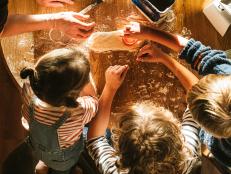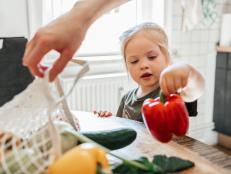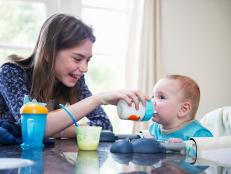Parenting Win of the Week: Let's Talk About Trauma
It's a difficult conversation to have with your kids, but this expert advice will help you ease into it.


Catherine Falls Commercial
Whenever a big traumatic event occurs, it seems that we as a society dwell in it and then move along. It could be the news cycle, it could be human nature, it could be a number of different things.
Talking to friends who were in Highland Park and friends who have dealt with other traumas, one thing that often comes up is how do we know if our kids are OK and what can we do?
We spoke with Doreen Marshall, Ph.D., Vice President of Mission Engagement at the American Foundation for Suicide Prevention. This month is suicide prevention month, and although this is not directly about suicide, it’s important to be in tune with what our kids may be dealing with. Below is a Q & A with Dr. Marshall and a good primer for anyone who may have experienced trauma or secondary trauma.
What can we do if our kids have experienced trauma or secondary trauma, like in a gun violence situation?
An important thing to remember about experiencing any trauma is that it can affect one’s sense of safety in the world. It is important for parents and others who interact with kids who have experienced trauma to establish some level of predictability in the child’s life — keeping routines and familiarity, engaging in activities that bring a sense of safety and comfort to the child, and making sure that there are safe ways to talk about what they have experienced. Some kids may be affected by a trauma in a physical way, such as feeling nervous or on alert, difficulty sleeping and/or having nightmares or lack of appetite. While for many this may dissipate some as time goes on, it is important to bring a mental health professional into the picture sooner than later if you are concerned that your child is having difficulty coping.
What are good resources to refer to?
The American Psychological Association Trauma and shock (apa.org) and the American School Counselor Crisis & Trauma Resources - American School Counselor Association (ASCA) have some excellent resources on trauma accessible via their websites. For information on how to find a mental health provider, you can go to Find a mental health professional | AFSP.
What's the best way to answer questions or talk about what happened?
In response to trauma, it is important to give a factual, age-appropriate explanation of what has occurred and to answer questions as they come up. More importantly is to give the kid a message that you are a safe person to talk to, that it’s OK to talk about what was experienced, and that you will answer questions as best you can or help find the answers when they exist. It’s important to remember that kids almost always fare better hearing difficult things from someone they trust than hearing it from another source, such as the news or on the playground.
When dealing with younger kids, are there any good books or things to say to them?
I think particularly with younger kids, it is important to reassure them they are not alone, that even when upsetting things happen there are people who will help them, and that you will get through what they are experiencing together. Trauma, particularly traumatic loss, can upset a child’s sense of who will be there to support them as they cope with the loss. Reassure them that you, and others such as mental health professionals, are there to support them. This is also a good time to model getting support for your mental health if you, too, have been affected.
Any particular worrying signs to look out for?
Some kids may be affected by a trauma in a physical way, such as feeling nervous or on alert, difficulty sleeping and/or having nightmares, or lack of appetite. While for many this may dissipate some as time goes on, it is important to bring a mental health professional into the picture sooner than later if you are concerned that your child is having difficulty coping. I would also watch for kids that seem to have more expressions of hopelessness, express thoughts of suicide or self-harm or engage in substance use, and make sure they are connected to appropriate mental health professionals to help support them. We should remember that some kids may already be vulnerable in terms of their mental health or have had past exposure to trauma before experiencing a recent trauma — these factors may make it harder for them to cope compared to other kids without similar vulnerabilities.
YOU MIGHT ALSO LIKE:
































































